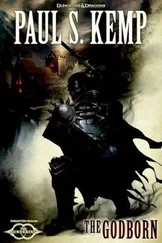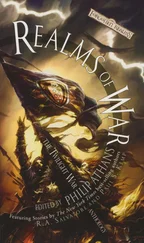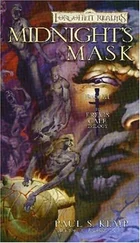Paul Kemp - Shadowstorm
Здесь есть возможность читать онлайн «Paul Kemp - Shadowstorm» весь текст электронной книги совершенно бесплатно (целиком полную версию без сокращений). В некоторых случаях можно слушать аудио, скачать через торрент в формате fb2 и присутствует краткое содержание. Жанр: Фэнтези, на английском языке. Описание произведения, (предисловие) а так же отзывы посетителей доступны на портале библиотеки ЛибКат.
- Название:Shadowstorm
- Автор:
- Жанр:
- Год:неизвестен
- ISBN:нет данных
- Рейтинг книги:4 / 5. Голосов: 1
-
Избранное:Добавить в избранное
- Отзывы:
-
Ваша оценка:
- 80
- 1
- 2
- 3
- 4
- 5
Shadowstorm: краткое содержание, описание и аннотация
Предлагаем к чтению аннотацию, описание, краткое содержание или предисловие (зависит от того, что написал сам автор книги «Shadowstorm»). Если вы не нашли необходимую информацию о книге — напишите в комментариях, мы постараемся отыскать её.
Shadowstorm — читать онлайн бесплатно полную книгу (весь текст) целиком
Ниже представлен текст книги, разбитый по страницам. Система сохранения места последней прочитанной страницы, позволяет с удобством читать онлайн бесплатно книгу «Shadowstorm», без необходимости каждый раз заново искать на чём Вы остановились. Поставьте закладку, и сможете в любой момент перейти на страницу, на которой закончили чтение.
Интервал:
Закладка:
To the east Tamlin could see the Khyber Gate. Though he could not see them, he knew a crowd had gathered there, a throng of rickety people with their rickety wagons. No matter how many refugees entered the city each day, the next day brought still more, sometimes by the handfuls, sometimes by the score. There was little to keep them on their farms, and all feared being caught outside of the city's walls when Ordulin's forces arrived.
Tamlin allowed all of them entry, despite the food shortage. He had ordered every priest in the city capable of doing so to use their god-given magic to create food and clean water. The priesthoods had resisted his overt encroachment on their self-perceived prerogative, but he had forced them. The soldiers and militiamen, hungry from training and most in need of their strength, ate first, then the rest of the populace. Stomachs still grumbled, but no one was starving. His actions had won him the affection of the people and the anger of the priesthoods.
In the immediate aftermath of Ordulin's declaration of war on Selgaunt and Saerb, many citizens had fled the city. The raft folk had been the first to flee, in an immense flotilla of barges festooned with colorful cloth and pennons. Some among the wealthy had found sudden "business" to occupy them abroad. Even Tamlin had quietly sent his mother, sister, and brother-over their objections-to Daerlun, ostensibly to court a pledge of neutrality from Daerlun's High Bergun, but really to remove them from harm. Most of the priests and priestesses had even abandoned the city, possibly in spiteful response to Tamlin's edicts. Only two or three clerics remained in each temple, and even those would have fled had Tamlin not forbade them from abandoning the city.
The flight was over now. Those still within Selgaunt's walls were those who would make a stand there. The city was transforming before his eyes from a rich mercantile capital into a hungry military encampment.
Squads of armed men in green tabards and weathercloaks moved in formation down the wide streets by night, and militia drilled in the commons and outside the walls by day. Scouts prowled the roads leading into the city. Workmen thronged the gates and walls. The clang of hammers, the cut of saws, and the sound of chisels striking stone carried through the air day and night.
Engineers supervised the reinforcement of the walls and gates, secured grates in the sewers, constructed an apparatus to drop part of the High Bridge into the Elzimmer River, built a battery of trebuchets, and oversaw the digging of cisterns to provide water during the inevitable siege. Tamlin had drained half of Selgaunt's treasury financing the work. If necessary, he would requisition the wealth of the Old Chauncel and the temples for additional monies. When Mirabeta's army came, it would find Selgaunt prepared. Or so he told himself.
When word of war had first circulated, Tamlin had worried about insurrection. He had feared the people would rise up, overthrow him and the Old Chauncel, and turn all of them over to Mirabeta in order to avert a war. But insurrection had never happened. He was not sure how, when, or why it had occurred, but citizens of the city had resigned themselves to war under his command. They would defend their city and their holdings.
The responsibility sat on him like a lead hundredweight.
The bells of the Temple of Song sounded the seventh hour. Tamlin saw the pennons atop the bell tower fluttering in the breeze. He knew Temple Avenue would be crowded for evening services. Desperation and fear filled temples better than any sermon. Even itinerant street preachers of obscure gods found a ready congregation for their words.
Tamlin found no succor in faith. He had learned from his father to make all the expected offerings to Tymora, to Waukeen, and lately, to Tempus, God of Battle, but they were only gestures, empty of meaning. He found himself mildly envious of people of faith: Vees Talendar, even Mister Cale. The faithful had a religion with which to anchor their lives. Tamlin's sorcery offered nothing of the kind. He had no anchor, and the waters were growing rougher each day.
A breeze off the bay carried the tang of salt and fish. Ships filled the harbor, some laden with timber and quarried stone for building, others with much needed food purchased by Selgauntan agents in the markets of Westgate, Teziir, and Starmantle. Countless torches, lanterns, and glowballs made the docks the brightest lit area of the city. An army of dock workers and sailors unloaded crates, sacks, barrels, and weapons. Far out into the bay, bobbing pinpoints of light marked the locations of the handful of under-equipped caravels that constituted Selgaunt's navy. It would not be long before Saerloon's warships would try to close the sea lanes.
Tamlin looked north, out over the river, past the High Bridge. He could see little. Darkness swallowed the plains. He imagined enemies out in the black. Each morning he awakened with the fear that he would see Ordulin's banners flying on the horizon at the head of an advancing army. Or perhaps Saerloonian pennons from the east would presage the beginning of the siege.
He could not remember how he had ended up standing where he stood. Events had moved so fast he scarcely had time to comprehend them, much less react to them. Dread ate at him. He knew it, but could do nothing to help himself. He slept little.
His hopes, such as they were, lay with the Shadovar. He had nothing else. The Shadovar alliance would save the city, or Selgaunt would fall and Tamlin would die.
He took a deep breath, smelled a distant fire on the air. He turned and called back into his chambers, where Thriistin, his chamberlain, awaited his command.
"Send for Lord Rivalen. I think the populace should see us together."
He did not say that he, too, found reassurance in the Shadovar ambassador's presence.
Cloaked in more than a dozen protective wards, Mirabeta sat alone at a small table in The Rouged Cheek, an expensive festhall in the Trade District of Ordulin. A magical hat of disguise masked her identity, giving her the appearance of Rynon, her house mage. As such, she tried to look interested in the surroundings. Her contact had requested that she meet him here. She had been instructed to pick any table, have a goblet of wine, and wait. She had done just that.
Paintings of men and women engaged in sex play-sometimes in pairs, sometimes in groups-covered the walls. Provocative, well-proportioned statuary stood on pedestals and in wall niches. A bearded minstrel sat on a stool on a corner stage, strumming a mandolin. Shirtless young men and scantily-clad young women lounged languidly on overstuffed divans, couches, and benches. The sweet smell of perfume and the pungent aroma of incense and sex filled the air. Laughter tinkled. Conversation hummed.
Men and women of wealth, most of them holding masks before their features, moved through the courtesans, evaluating, flirting, partaking of narcotics and spiced wine. From time to time, a pair or group would retire upstairs for a private encounter. The looming civil war and the food shortage had done nothing to curb the appetites of Ordulin's wealthy. Perhaps it had even increased their desires, as they sought escape in purchased pleasures.
A slim, dark-haired woman in a form-fitting gown of violet silk approached Mirabeta's table. She held before her face a pale, ceramic mask of a nymph with laughing eyes and a bright smile. Mirabeta could see only her strikingly green eyes.
"You have not touched your wine," the woman said.
"I am waiting for someone."
"Indeed."
The woman pulled back a chair with her foot and sat down.
Mirabeta looked at the slight woman, puzzled. She looked as fragile as glass, hardly what Mirabeta anticipated in a follower of The Scaly Way.
Читать дальшеИнтервал:
Закладка:
Похожие книги на «Shadowstorm»
Представляем Вашему вниманию похожие книги на «Shadowstorm» списком для выбора. Мы отобрали схожую по названию и смыслу литературу в надежде предоставить читателям больше вариантов отыскать новые, интересные, ещё непрочитанные произведения.
Обсуждение, отзывы о книге «Shadowstorm» и просто собственные мнения читателей. Оставьте ваши комментарии, напишите, что Вы думаете о произведении, его смысле или главных героях. Укажите что конкретно понравилось, а что нет, и почему Вы так считаете.












